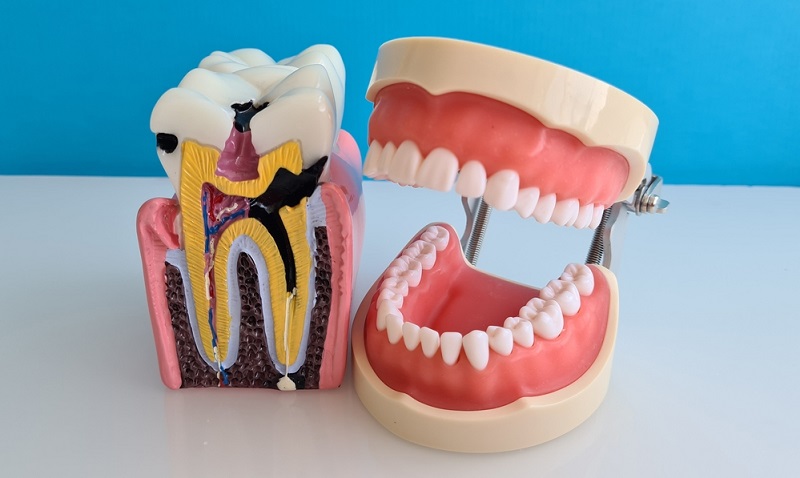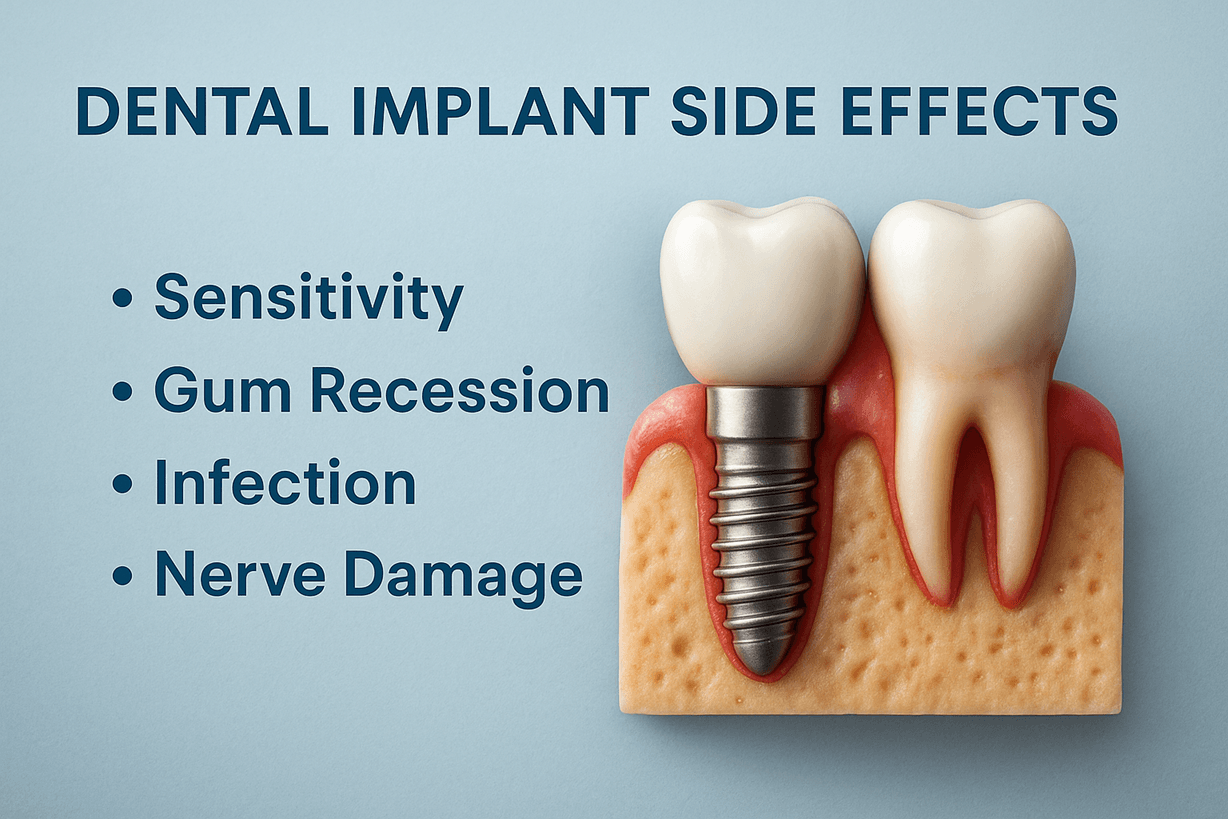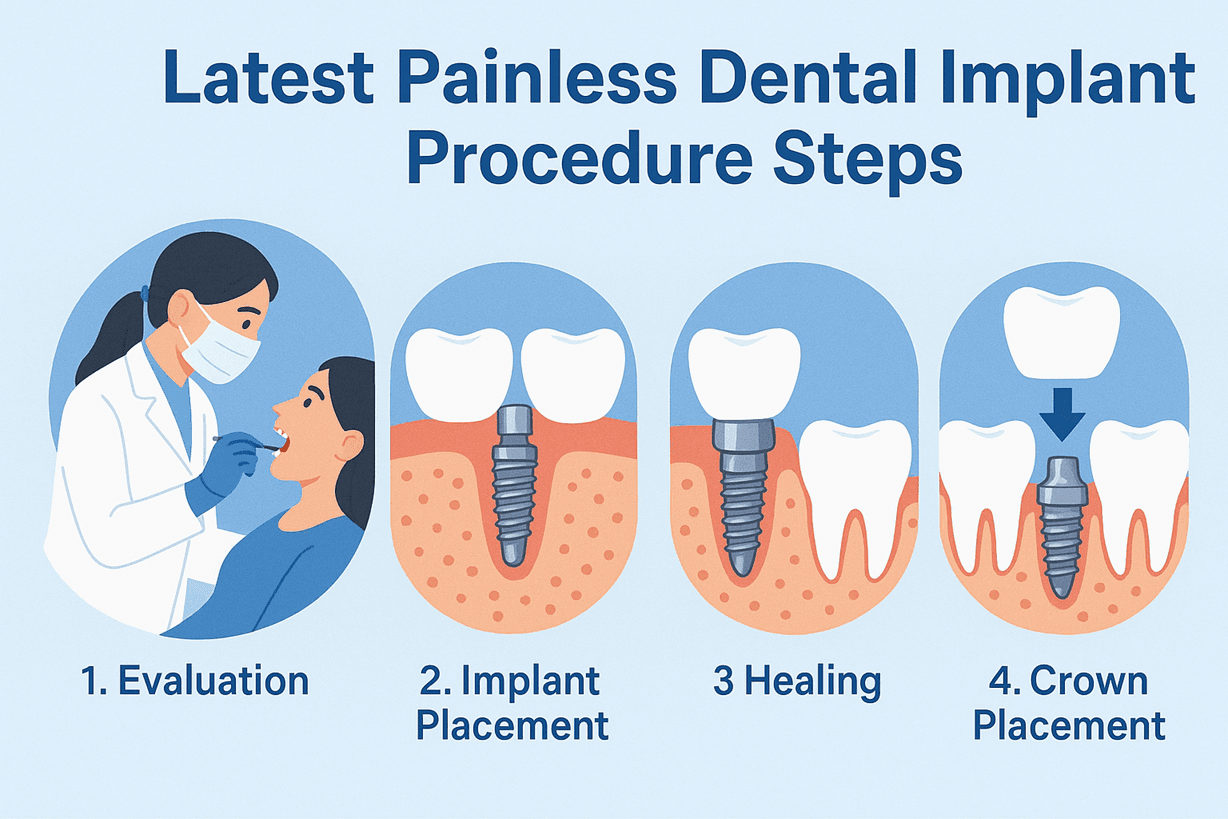Contents

Many wonder if they might acquire an infection after a root canal. While it is uncommon, a mild to severe infection can occur following a root canal operation.
It is critical to be aware of and detect infection signs early on to prevent the illness from spreading or causing extra issues.
Root Canal Infection After The Procedure
Root Canal Therapy: What You Need to Know
- Saves Infected Teeth: A root canal can prevent a tooth from deteriorating due to an infection.
- Removes Infection: The procedure eliminates the infection and helps the tooth live longer.
- Possibility of Re-infection: Occasionally, a root canal-treated tooth may redevelop an infection during recovery or even months or years later.
Causes of Re-infection:
- Lack of Follow-Up: Patients may fail to follow up or refuse a dental crown.
- Need for Crowns: A dental crown provides extra protection. Most periodontists recommend covering a root canal-treated tooth with a crown to prevent re-infection.
- Improper Filling: The dentist may not adequately fill the pulp chamber with a root canal seal.
- Overlooked Accessory Canals: Lateral canals, which are curving, slender roots branching off the main canals, may be missed during treatment.
Solutions:
- Second Treatment: Re-infection after a root canal does not always require extraction. A second treatment can correct issues from the initial procedure.
- Advanced Treatments: At Dezy, we use the most advanced dental treatments to achieve the best possible results.
- Trusted Care: Feel confident entrusting us with your dental therapy and journey.
5 Signs Of Infection After Root Canal That You Must Look Out For
1. Pain or Soreness:
It is usual to have pain or soreness for a few days following a root canal, particularly in the area of the impacted tooth and gums. But, if the discomfort intensifies or lasts more than three days, you should see your dentist or endodontist immediately!
Pain or discomfort ranging from minor soreness to severe agony, particularly when applying pressure to the tooth when eating or pressing on it, or while exposing the teeth to excessive temperatures.
2. Pimple or Abscess:
A pimple or abscess on the gums around the tooth, with or without discomfort, is common before a root canal. This pimple frequently oozes pus or fluid. This abscess should shrink and finally vanish when a root canal is completed.
If the abscess persists for longer than seven to ten days following the root canal operation, you may have an infection and should immediately call your endodontist or dentist. You must watch out for pus discharge that is greenish, yellowish, or otherwise discoloured.
3. Feeling Hot in the Infected Region:
An infected region will frequently feel warm to hot. If the region surrounding the tooth and gum where the root canal surgery is being performed seems unusually warm, contact your dentist or endodontist right once.
Red, warm, swollen tissue near the tooth, particularly the gums under or around the tooth — in some cases, swelling can affect your face and neck, too.
4. Broken Tooth Root:
The root of a tooth might be broken due to decay or pre-existing fissures that are too tiny to perceive. If a root fracture occurs, you and your endodontist will need to consider treatment options, including tooth extraction.
Watch out for any signs of discomfort or tenderness in swollen tissue, especially when touched or applied pressure to it.
5. Bad Taste or Bad Breath:
A bad taste in your mouth or a bad odour to your breath from infected tissue. Individuals with root canal infections typically have persistent foul breath.
If the foul breath persists despite brushing, flossing, and utilizing dental washes, an infection is likely.
The bacterium that causes a root canal infection emits an odour. This results in bad breath and a bitter aftertaste in the mouth. The formation of an abscess might exacerbate the condition.
Pain After Root Canal Infection- What Is Normal and What Is Not Normal!
1. Pain After Root Canal Infection That is Normal:
If you've had a root canal recently and are experiencing slight pain, stiffness, and inflammation, don't panic.
This is common and typically temporary. Here are some key points:
Pain Management: Use over-the-counter pain relievers like ibuprofen or acetaminophen.
Causes of Pain:
Nerves in surrounding ligaments and tissue may be irritated.
The use of sharp dental tools during the procedure can cause minor stress to adjacent tissue.
Healing Process: Mild discomfort for a few days is normal. Your tooth should be fully pain-free once the site has healed.
2. Pain After Root Canal Infection That is NOT Normal:
If you have acute, sharp pain or discomfort that persists for more than 1-2 weeks following your treatment, this is not normal and suggests that your root canal failed the infection is still going on and the tooth is still festering with an infection!
This can occur if the tooth has undetectable fractures or damage, the root was not adequately cleansed, or a concealed root canal was not identified and treated during the root canal therapy procedure.
Endodontic retreatment may be able to salvage your tooth. Basically, your dentist will repeat the root canal procedure to remove any concealed concerns with your tooth.
Nevertheless, in rare circumstances, endodontic retreatment may not be viable, and the tooth may need to be pulled and replaced with a dental implant or a similar repair. While Dezy will always make every effort to save your tooth, this is not always achievable if the damage is extreme.
Gum Infection After Root Canal
Swollen, painful gums can result from various factors, such as food or dental floss lodged between teeth, poor brushing and flossing habits leading to gingivitis or periodontitis, pregnancy, an abscessed tooth, or certain medications.
Endodontists perform root canals to remove infections and preserve damaged teeth. While reinfection is rare, it can cause discomfort, swelling, and other symptoms.
If you suspect reinfection, contact your endodontist immediately, as untreated infections can spread to nearby teeth, gums, and tissue.
Conclusion
In short, if you notice that there is excess pass swelling, redness, or soreness in your mouth or your gums, contact your nearest Dezy dental clinic right away!
You could also get on to the website and take an assessment by yourself. This assessment is basically a questionnaire that will ask you for details regarding your dental condition or issue.
Once you answer these questions correctly, you will be given a pre-purchase report that gives you a detailed explanation of the treatment plan that is right for you. And here is the best part, you get this report in your hand even before you reach the dentist.
So, why not take a free smile assessment now?



